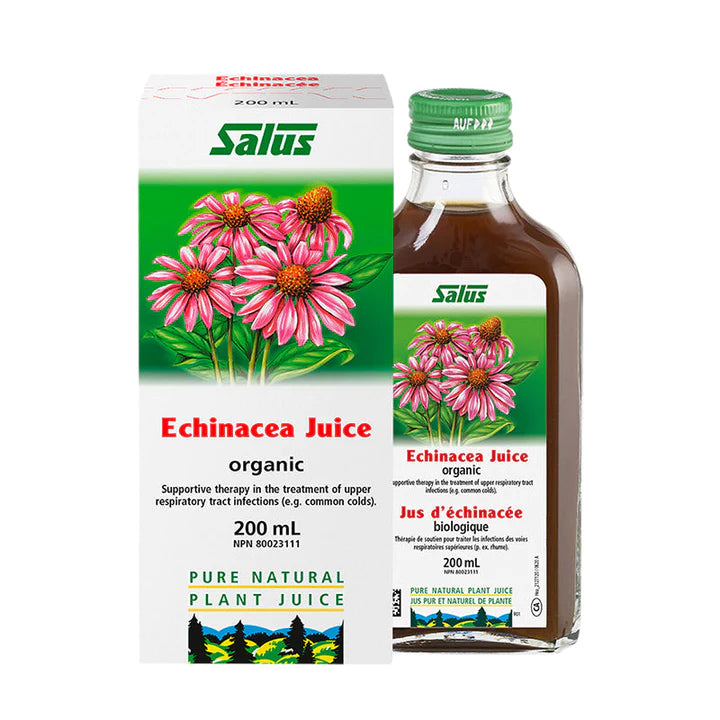This includes the skin, cornea of the eye, and linings of the lungs and digestive tract.
If a pathogen manages to get past the body’s physical barrier, we have immune cells ready to neutralize them in our sinuses, eyes, digestive tract, and lungs1. Most of the time, our immune system is so effective that we don’t even notice that we have successfully defeated an intruder.
Every once in a while, our initial immune defenses fail, and a pathogen starts to replicate and infect our cells. At this point, the body sounds the alarm and brings in reinforcements to fight the infection. The ensuing battle between the pathogen and our immune system causes us to feel unwell, and we experience symptoms such as a runny nose, fever, fatigue, or cough1.
Cold and flu symptoms are indications that the immune system is actively fighting a pathogen, and it could use some extra support. When you are feeling sick, it can be helpful to give your immune system a boost to relieve symptoms more quickly and get you back to feeling your best.
Echinacea Plant Juice helps to relieve symptoms of colds and upper respiratory tract infections by stimulating the immune system2, inactivating pathogens3,4, and reducing inflammation2,3.
Echinacea stimulates our immune system helping our body make the white blood cells we need to fight infection. It activates neutrophils to fight bacteria and natural-killer cells to fight viruses2. Echinacea also activates macrophages2, which are white blood cells that engulf pathogens to destroy them.
Echinacea has been shown to have antibacterial3 and antiviral4 activity, meaning it directly neutralizes some types of bacteria and viruses. Echinacea has been shown to inactivate influenza A and B4, rhinovirus (the common cold)5, and Group A Strep3, which are some of the most common pathogens to cause cold and flu.
Echinacea also has anti-inflammatory components2,3. This means it can help to clean up the inflammation that our immune system creates as it fights infection.
Echinacea Plant Juice is made from organic, fresh echinacea herb and root that is pressed and sealed within 2-3 hours of harvesting the plant. Since it is made from the whole plant, it contains a full spectrum of active herb ingredients. It does not contain preservatives, added sugars, colors, or flavors.
How it Works
Echinacea Juice (Echinacea purpurea)
- Stimulates the immune system by activatingthe white blood cells that fight infection2.
- Gentle antibacterial and antiviral activity that neutralizes common pathogens3-5.
- Anti-inflammatory action helps to clean up inflammation caused by an infection.
Echinacea Juice helps to relieve symptoms of colds and upper respiratory tract infections by stimulating the immune system2, inactivating pathogens3,4, and reducing inflammation2,3.
Echinacea stimulates our immune system helping our body make the white blood cells we need to fight infection. It activates neutrophils to fight bacteria and natural-killer cells to fight viruses2. Echinacea also activates macrophages2, which are white blood cells that engulf pathogens to destroy them.
Echinacea has been shown to have antibacterial3 and antiviral4 activity, meaning it directly neutralizes some types of bacteria and viruses. Echinacea has been shown to inactivate influenza A and B4, rhinovirus (the common cold)5, and Group A Strep3, which are some of the most common pathogens to cause cold and flu.
Ingredients
Each 10 ml Contains
| Echinacea Juice (Echinacea purpurea) | 10 ml |
Ingredients: Echinacea juice made from fresh echinacea (Echinacea purpurea) herb and root
Vegan | Gluten Free | Contains No Priority Allergens
Dr. Hilary’s Lifestyle Tips To Improve
Dr. Hilary’s Tips For Boosting the Immune System
- Focus on eating nutrient-rich foods. Foods high in vitamin A (carrot, sweet potato), vitamin C (broccoli, bell pepper), vitamin E (almond, avocado), and zinc (meat, beans), are especially beneficial for strengthening the immune system.
- Make sure to eat enough protein. We need 0.8g of protein per kilogram of body weightper day to meet our protein requirements. The immune system cells that fight pathogens are made of protein, so if we don’t eat enough protein, we can’t fight infection.
- Ask for a vitamin D blood test at least once per year. Adequate vitamin D is essential for a strong immune system, but too much vitamin D in the body can be toxic. We get vitamin D from sun exposure, so lab testing to accurately adjust supplementation is important when we live in a cold climate.
- Prioritize sleep. Lack of sleep and poor sleep quality make us more susceptible to cold and flu, and it increases the time it takes to recover from illness6. Set a bedtime, sleep in a dark room, and turn off electronics 30 minutes before bed to help improve your sleep.
- Heal the gut! About70% of our immune system originates in the gut7, and healthy gut microbiome is the foundation of a healthy immune system. Symptoms of bloating, diarrhea, constipation, or indigestion may be an indication that your gut could benefit from additional support as a way of supporting immune function.
References
- Chaplin DD. Overview of the immune response. J Allergy Clin Immunol. 2010;125(2 Suppl 2):S3-S23.
- Manayi A, Vazirian M, Saeidnia S. Echinacea purpurea: Pharmacology, phytochemistry and analysis methods. Pharmacogn Rev. 2015;9(17):63-72.
- Sharma SM, Anderson M, Schoop SR, Hudson JB. Bactericidal and anti-inflammatory properties of a standardized Echinacea extract (Echinaforce): dual actions against respiratory bacteria. Phytomedicine. 2010 Jul;17(8-9):563-8.
- Hudson J, Vimalanathan S. Echinacea—A source of potent antivirals for respiratory virus infections. Pharmaceuticals (Basel). 2011;4(7):1019-1031.
- Rondanelli M et al. Self-care for common colds: The pivotal role of vitamin D, vitamin C, zinc, and Echinaceain three main immune interactive clusters (physical barriers, innate and adaptive immunity) involved during an episode of common colds. Evid Based Compliment Alternat Med. 2018;2018;5813095.
- Besedovsky L, Lange T, Born J. Sleep and immune function. Pflugers Arch. 2012;463(1):121-137.
- Vighi G, Marcucci F, Sensi L, Di Cara G, Frati F. Allergy and the gastrointestinal system. Clin Exp Immunol. 2008;153 Suppl 1(Suppl 1):3-6.




